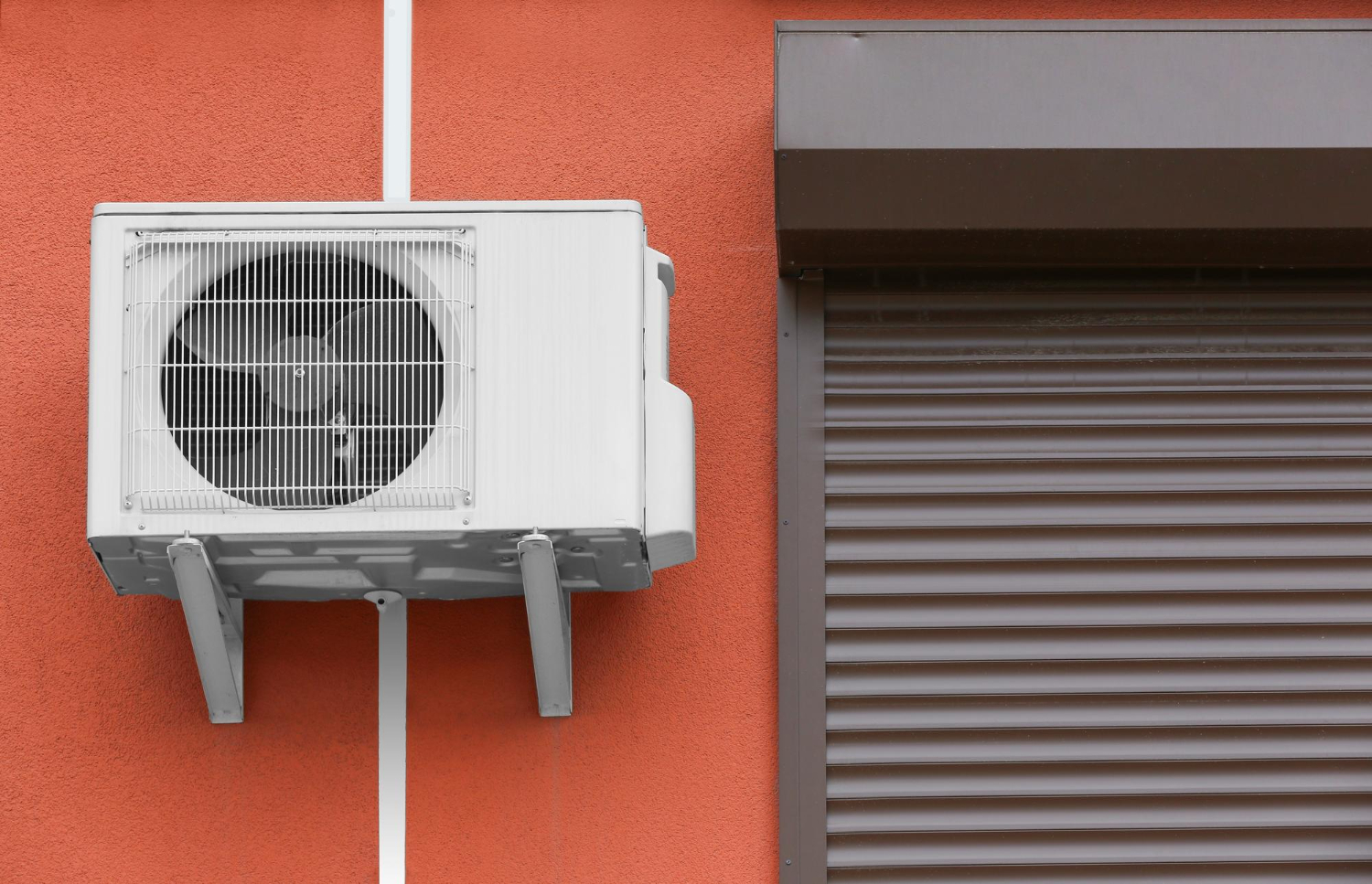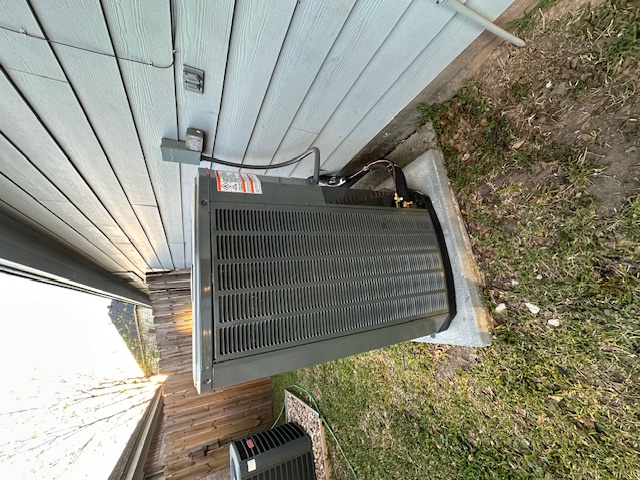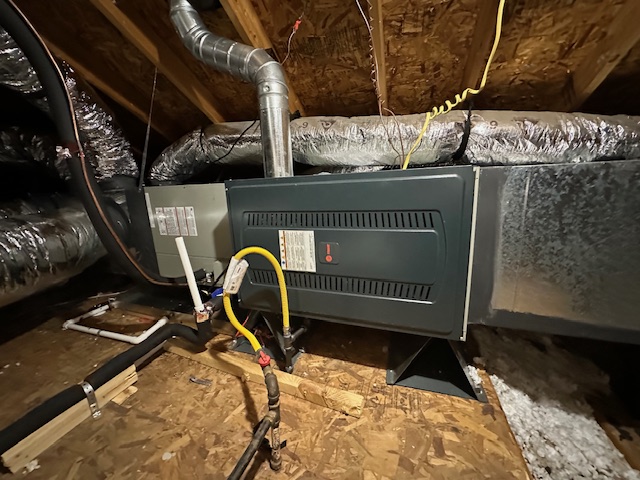Window air conditioning units need regular care to work well and last longer. Many people forget about maintenance until their AC stops cooling properly or breaks down completely. Regular servicing can prevent most common AC problems and help your unit run efficiently for years.
We often take our window AC units for granted during hot summer months. These hardworking machines filter air, remove humidity, and keep our homes comfortable. Without proper care, they can develop issues like poor cooling, strange noises, or high energy bills.
According to the U.S. Department of Energy, routine maintenance—including cleaning filters, coils, and ensuring clear condensate drains—is essential to maintain peak performance and lower energy bills in window air conditioners. Technicians can clean the drain channels, straighten coil fins, and ensure tight window seals as part of proper care.
The good news is that maintaining your window AC unit doesn't have to be complicated or expensive. Simple steps like cleaning filters and checking for problems can make a big difference.
In this article, you’ll learn how window AC unit service keeps your system efficient and prevents mid-summer breakdowns.
Here’s what you need to know:
- Why servicing your window AC unit matters
- What's included in a window AC unit service
- How often should you schedule window AC unit maintenance
- When to replace versus maintain a window AC
- Choosing a technician for heating and air window unit service
Keep reading! We'll cover everything you need to know about keeping your cooling system in top shape, from basic maintenance tasks to knowing when it's time to call a professional.
Why servicing your window AC unit matters
Regular maintenance keeps your window AC running efficiently and prevents costly breakdowns. Poor upkeep leads to higher energy bills and reduced cooling power.
Common signs your unit needs attention
We can spot several warning signs when our window AC needs service. Strange noises like grinding, squealing, or rattling sounds mean internal parts may be worn or loose.
Weak airflow from the vents shows the unit is struggling. This happens when filters get clogged or the fan motor starts failing.
Warm air blowing instead of cold air means the cooling system isn't working right. The refrigerant might be low or the compressor could have problems.
Higher electric bills without using the AC more often signal the unit is working harder than normal. This wastes energy and costs us money.
Bad smells coming from the unit point to mold growth or burnt electrical parts. We should address these issues quickly for health and safety reasons.
Ice buildup on the coils or around the unit shows airflow problems or refrigerant issues. The AC will stop cooling properly when this happens.
How neglect affects performance and energy use
The U.S.Department of Energy highlights that dirty filters alone can increase energy consumption by 5–15%, while clogged coils and fins contribute to system strain and premature failure.
Clogged coils reduce heat transfer efficiency. When dirt builds up on the evaporator and condenser coils, the unit can't remove heat from our room effectively.
Low refrigerant levels make the compressor run longer cycles. This wastes electricity and puts extra stress on the motor components.
Blocked drainage causes water to back up inside the unit. This creates humidity problems and can damage electrical parts over time.
Poor maintenance shortens the lifespan of our window AC. Units that get regular service typically last 10-15 years, while neglected ones may fail after 5-8 years.
Differences between window units and central HVAC systems
Window units are self-contained systems that we can service ourselves with basic tools. Central HVAC systems require professional technicians for most repairs and maintenance.
Filter changes in window units take just minutes. We simply slide out the old filter and put in a new one. Central systems often need special filter sizes and harder-to-reach locations.
Coil cleaning is easier with window units since we can access both sides. Central system coils are often in tight spaces or require special equipment to clean properly.
Refrigerant issues affect both types, but window units use smaller amounts. Central systems have more complex refrigerant lines that can develop leaks in multiple locations.
Cost differences make window unit maintenance much cheaper. We can handle most tasks ourselves, while central HVAC service calls typically cost $100-300 per visit.
What's included in a window AC unit service
Professional window AC service covers four main areas: cleaning internal components, testing electrical systems, checking refrigerant levels, and completing work within a typical 1-2 hour timeframe.
Cleaning coils, filters, and drainage channels
We start by removing and cleaning the air filter, which traps dust and debris. Most filters can be washed with warm water and mild soap, then dried completely before reinstalling.
The evaporator coils inside the unit get cleaned with specialized coil cleaner. We spray the solution on the coils and let it foam to break down dirt buildup. This step improves cooling efficiency.
Condenser coils on the back of the unit also need attention. We use a soft brush or vacuum to remove debris like leaves and dirt that block airflow.
Drainage system cleaning includes:
- Clearing the drain pan of standing water
- Flushing drainage channels with water
- Removing algae or mold buildup
- Checking drain holes for clogs
We also clean the unit's exterior housing and vents to ensure proper airflow throughout the system.
Checking electrical components and fan operation
We inspect all electrical connections for signs of wear, corrosion, or loose wires. Damaged wiring can cause the unit to malfunction or create safety hazards.
The fan motor gets tested for proper operation at different speed settings. We check that the fan blades spin freely and listen for unusual noises that might indicate bearing problems.
Our electrical inspection covers:
- Power cord and plug condition
- Internal wiring connections
- Control switches and thermostat
- Capacitor functionality
We also test the compressor's electrical components to ensure they're drawing the correct amount of power. This helps us spot potential problems before they cause complete system failure.
How refrigerant levels are assessed
We measure refrigerant pressure using specialized gauges connected to the system's service ports. Low refrigerant levels reduce cooling capacity and can damage the compressor.
Signs of refrigerant problems include ice formation on coils, reduced cooling output, and unusual hissing sounds. We check for visible leaks around connections and joints.
Refrigerant assessment includes:
- Pressure testing at service ports
- Visual leak inspection
- Temperature differential measurements
- System performance evaluation
If we find low refrigerant levels, we locate and repair leaks before adding new refrigerant. Simply adding more refrigerant without fixing leaks wastes money and harms the environment.
Typical timeline for service appointments
Most window AC service appointments take 1-2 hours to complete. Simple cleaning and inspection jobs finish faster, while units needing repairs take longer.
We schedule appointments during spring and fall when demand is lower. Peak summer months ‘may have longer wait times for service calls.
Service timeline factors:
- Unit size and complexity
- Amount of cleaning needed
- Repair requirements
- Accessibility of the unit
We bring all necessary tools and common replacement parts to minimize return visits. This approach helps us complete most service work in a single appointment.
How often should you schedule window AC unit maintenance
Most window AC units need professional service once a year, while basic cleaning tasks should happen monthly during use. The timing depends on how much you use your unit and your local climate conditions.
Seasonal service timing for best results
Spring preparation works best for professional maintenance visits. Schedule service in April or May before hot weather arrives.
This timing lets technicians fix problems before you need cooling most. Spring appointments are also easier to book than summer ones.
Pre-season tasks include cleaning coils, checking refrigerant levels, and testing electrical parts. These steps prevent breakdowns during peak usage.
Some people prefer fall maintenance after the cooling season ends. This approach works well in mild climates where units don't work as hard.
Monthly cleaning during active months keeps your unit running well between professional visits. Clean or replace filters every 30 days when using your AC regularly.
Factors that affect service frequency
Heavy usage means more frequent maintenance needs. Units running 8+ hours daily need service twice yearly instead of once.
Dusty environments require more attention. Homes near construction sites or unpaved roads need filter changes every 2-3 weeks.
Pet hair and dander clog filters faster than normal household dust. Pet owners should check filters weekly during peak season.
Older units (5+ years) benefit from professional service every 6 months. Aging parts need more frequent inspection and adjustment.
Coastal locations with salt air require special attention. Salt corrodes metal parts faster, making quarterly professional checks worthwhile.
DIY upkeep vs. hiring a pro for full maintenance
DIY upkeep handles basic cleaning and filter changes. You can clean exterior fins, wipe down vents, and replace filters safely.
Monthly tasks include washing reusable filters, clearing drain holes, and checking for ice buildup. These steps take 15-20 minutes.
Professional service covers refrigerant levels, electrical connections, and internal coil cleaning. These tasks need special tools and training.
Safety concerns make some jobs unsuitable for DIY work. Electrical repairs and refrigerant handling require licensed technicians.
Cost balance suggests doing monthly cleaning yourself while scheduling yearly professional service. This approach saves money while maintaining performance.
When to replace versus maintain a window AC
Window AC units can often be recharged when they lose cooling power, but this service has specific limitations and costs that affect whether repair or replacement makes more sense.
Can a window AC unit be recharged?
Yes, we can recharge window AC units when they lose refrigerant. Most units use R-410A or R-32 refrigerant that may leak over time.
When recharging works:
- Unit is less than 8 years old
- Cooling system components function properly
- Small refrigerant leak exists
- Compressor runs without unusual noises
Recharging typically costs $150-$300. We need a licensed technician because refrigerant handling requires EPA certification.
When replacement is better:
- Unit is over 10 years old
- Major refrigerant leak exists
- Compressor fails frequently
- Recharging costs exceed 50% of new unit price
Older units often develop multiple leaks after the first repair. We usually recommend replacement when recharging fails within two years.
New window AC units offer better energy efficiency and reliability than recharged older models. Modern units use less electricity and cool more effectively than units from before 2020.
Choosing a technician for heating and air window unit service
Finding the right technician for your window AC unit requires asking specific questions about their experience with small units. Service costs in Houston typically range from $75 to $200 for basic maintenance, while companies like Horizon Air Solutions offer specialized care for compact systems alongside their central air services.
What to ask when hiring for small-unit HVAC work
We recommend asking potential technicians about their specific experience with window units. Many HVAC professionals focus on central systems and may lack expertise with compact units.
Ask if they carry common window AC parts in their truck. This saves time and prevents multiple service calls for simple repairs.
Key questions to ask:
- How many window units do you service monthly?
- Do you have experience with my specific brand and model?
- What tools do you bring for small-unit work?
- Can you clean both indoor and outdoor coils?
Request references from customers who had similar window unit work done. A good technician will provide at least three recent references without hesitation.
Ask about their diagnostic process for window units. They should check refrigerant levels, electrical connections, and airflow patterns as standard procedure.
Costs to expect for window AC unit service in Houston
Houston window AC service typically costs between $75 and $200 for routine maintenance. Basic cleaning and inspection usually falls on the lower end of this range.
Refrigerant refills add $50 to $150 to your bill depending on the type needed. Older units may require R-22 refrigerant, which costs more than newer alternatives.
Common service costs:
- Basic cleaning and tune-up: $75-$125
- Refrigerant refill: $50-$150
- Electrical repairs: $100-$200
- Coil replacement: $150-$300
Emergency service calls cost 25% to 50% more than scheduled appointments. We suggest booking maintenance during off-peak months like spring or fall.
Parts replacement varies widely based on availability. Window unit parts are often less expensive than central system components, but they may take longer to obtain.
Why Horizon Air Solutions services more than just central systems
We understand that many HVAC companies focus only on large central air systems. Horizon Air Solutions recognizes that window units need professional attention too.
Our technicians receive training on both central and compact HVAC units. This dual expertise helps us diagnose problems faster and provide better service.
Window units often have unique mounting and drainage issues that central system technicians miss. We check these specific problem areas during every service call.
Our window unit services include:
- Seasonal preparation and winterization
- Electrical connection inspection
- Mounting bracket safety checks
- Drainage system cleaning
We stock parts for major window unit brands in our service vehicles. This preparation reduces service time and gets your cooling system running faster.
Our team understands that window units are often the primary cooling source for apartments and smaller homes. We treat these systems with the same urgency as central air repairs.
Benefits of preventive care for compact HVAC units
Regular maintenance extends window unit life by three to five years on average. We recommend professional service twice yearly for optimal performance.
Preventive care catches small problems before they become expensive repairs. A dirty filter or loose electrical connection can damage the compressor if left unchecked.
Clean coils improve energy efficiency by up to 15%. This translates to lower electric bills throughout Houston's hot summer months.
Preventive maintenance includes:
- Filter replacement or cleaning
- Coil cleaning and inspection
- Electrical connection tightening
- Refrigerant level checks
Scheduled maintenance prevents emergency breakdowns during peak summer heat. Window units that receive regular care rarely fail unexpectedly.
Professional cleaning removes mold and bacteria that can affect indoor air quality. This is especially important for units used in bedrooms or living areas.
Conclusion
Regular window AC maintenance keeps your unit working well all summer long. These simple steps take just a few minutes each month.
Clean filters make the biggest difference in performance. We recommend checking them every 30 days during peak cooling season.
Small problems become big repairs when we ignore them. A dirty filter can reduce cooling by 15% and increase energy costs.
Professional service helps when you notice strange noises, weak airflow, or higher electric bills. Some repairs need trained technicians.
We save money by doing basic maintenance ourselves. Professional tune-ups work best once per year before summer starts.
Your AC unit can last 10-15 years with proper care. Regular cleaning and simple checks prevent most common problems.
Start with the easiest task first. Check your filter today and mark your calendar for monthly maintenance reminders.
Book your window AC unit service today to prevent breakdowns and keep your cooling system running efficiently all summer.











